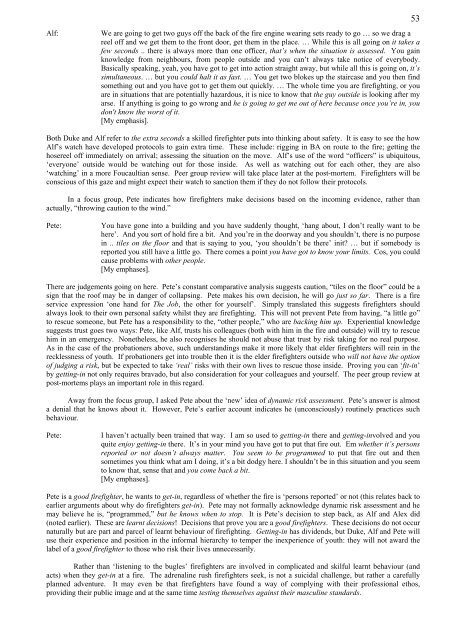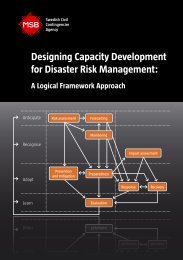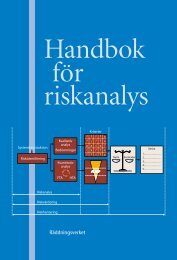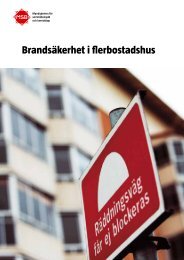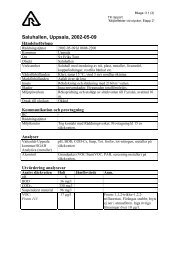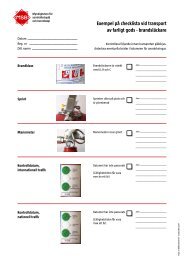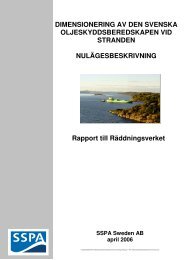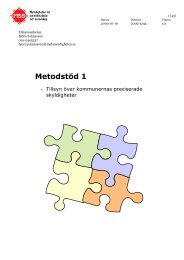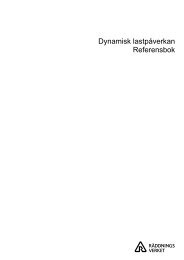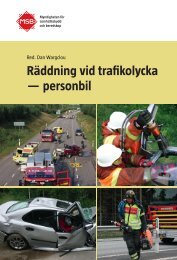One more last working class hero
One more last working class hero
One more last working class hero
Create successful ePaper yourself
Turn your PDF publications into a flip-book with our unique Google optimized e-Paper software.
Alf:<br />
We are going to get two guys off the back of the fire engine wearing sets ready to go … so we drag a<br />
reel off and we get them to the front door, get them in the place. … While this is all going on it takes a<br />
few seconds .. there is always <strong>more</strong> than one officer, that’s when the situation is assessed. You gain<br />
knowledge from neighbours, from people outside and you can’t always take notice of everybody.<br />
Basically speaking, yeah, you have got to get into action straight away, but while all this is going on, it’s<br />
simultaneous. … but you could halt it as fast. … You get two blokes up the staircase and you then find<br />
something out and you have got to get them out quickly. … The whole time you are firefighting, or you<br />
are in situations that are potentially hazardous, it is nice to know that the guy outside is looking after my<br />
arse. If anything is going to go wrong and he is going to get me out of here because once you’re in, you<br />
don't know the worst of it.<br />
[My emphasis].<br />
53<br />
Both Duke and Alf refer to the extra seconds a skilled firefighter puts into thinking about safety. It is easy to see the how<br />
Alf’s watch have developed protocols to gain extra time. These include: rigging in BA on route to the fire; getting the<br />
hosereel off immediately on arrival; assessing the situation on the move. Alf’s use of the word “officers” is ubiquitous,<br />
‘everyone’ outside would be watching out for those inside. As well as watching out for each other, they are also<br />
‘watching’ in a <strong>more</strong> Foucaultian sense. Peer group review will take place later at the post-mortem. Firefighters will be<br />
conscious of this gaze and might expect their watch to sanction them if they do not follow their protocols.<br />
In a focus group, Pete indicates how firefighters make decisions based on the incoming evidence, rather than<br />
actually, “throwing caution to the wind.”<br />
Pete:<br />
You have gone into a building and you have suddenly thought, ‘hang about, I don’t really want to be<br />
here’. And you sort of hold fire a bit. And you’re in the doorway and you shouldn’t, there is no purpose<br />
in .. tiles on the floor and that is saying to you, ‘you shouldn’t be there’ init? … but if somebody is<br />
reported you still have a little go. There comes a point you have got to know your limits. Cos, you could<br />
cause problems with other people.<br />
[My emphases].<br />
There are judgements going on here. Pete’s constant comparative analysis suggests caution, “tiles on the floor” could be a<br />
sign that the roof may be in danger of collapsing. Pete makes his own decision, he will go just so far. There is a fire<br />
service expression ‘one hand for The Job, the other for yourself’. Simply translated this suggests firefighters should<br />
always look to their own personal safety whilst they are firefighting. This will not prevent Pete from having, “a little go”<br />
to rescue someone, but Pete has a responsibility to the, “other people,” who are backing him up. Experiential knowledge<br />
suggests trust goes two ways: Pete, like Alf, trusts his colleagues (both with him in the fire and outside) will try to rescue<br />
him in an emergency. Nonetheless, he also recognises he should not abuse that trust by risk taking for no real purpose.<br />
As in the case of the probationers above, such understandings make it <strong>more</strong> likely that elder firefighters will rein in the<br />
recklessness of youth. If probationers get into trouble then it is the elder firefighters outside who will not have the option<br />
of judging a risk, but be expected to take ‘real’ risks with their own lives to rescue those inside. Proving you can ‘fit-in’<br />
by getting-in not only requires bravado, but also consideration for your colleagues and yourself. The peer group review at<br />
post-mortems plays an important role in this regard.<br />
Away from the focus group, I asked Pete about the ‘new’ idea of dynamic risk assessment. Pete’s answer is almost<br />
a denial that he knows about it. However, Pete’s earlier account indicates he (unconsciously) routinely practices such<br />
behaviour.<br />
Pete:<br />
I haven’t actually been trained that way. I am so used to getting-in there and getting-involved and you<br />
quite enjoy getting-in there. It’s in your mind you have got to put that fire out. Em whether it’s persons<br />
reported or not doesn’t always matter. You seem to be programmed to put that fire out and then<br />
sometimes you think what am I doing, it’s a bit dodgy here. I shouldn’t be in this situation and you seem<br />
to know that, sense that and you come back a bit.<br />
[My emphases].<br />
Pete is a good firefighter, he wants to get-in, regardless of whether the fire is ‘persons reported’ or not (this relates back to<br />
earlier arguments about why do firefighters get-in). Pete may not formally acknowledge dynamic risk assessment and he<br />
may believe he is, “programmed,” but he knows when to stop. It is Pete’s decision to step back, as Alf and Alex did<br />
(noted earlier). These are learnt decisions! Decisions that prove you are a good firefighters. These decisions do not occur<br />
naturally but are part and parcel of learnt behaviour of firefighting. Getting-in has dividends, but Duke, Alf and Pete will<br />
use their experience and position in the informal hierarchy to temper the inexperience of youth: they will not award the<br />
label of a good firefighter to those who risk their lives unnecessarily.<br />
Rather than ‘listening to the bugles’ firefighters are involved in complicated and skilful learnt behaviour (and<br />
acts) when they get-in at a fire. The adrenaline rush firefighters seek, is not a suicidal challenge, but rather a carefully<br />
planned adventure. It may even be that firefighters have found a way of complying with their professional ethos,<br />
providing their public image and at the same time testing themselves against their masculine standards.


